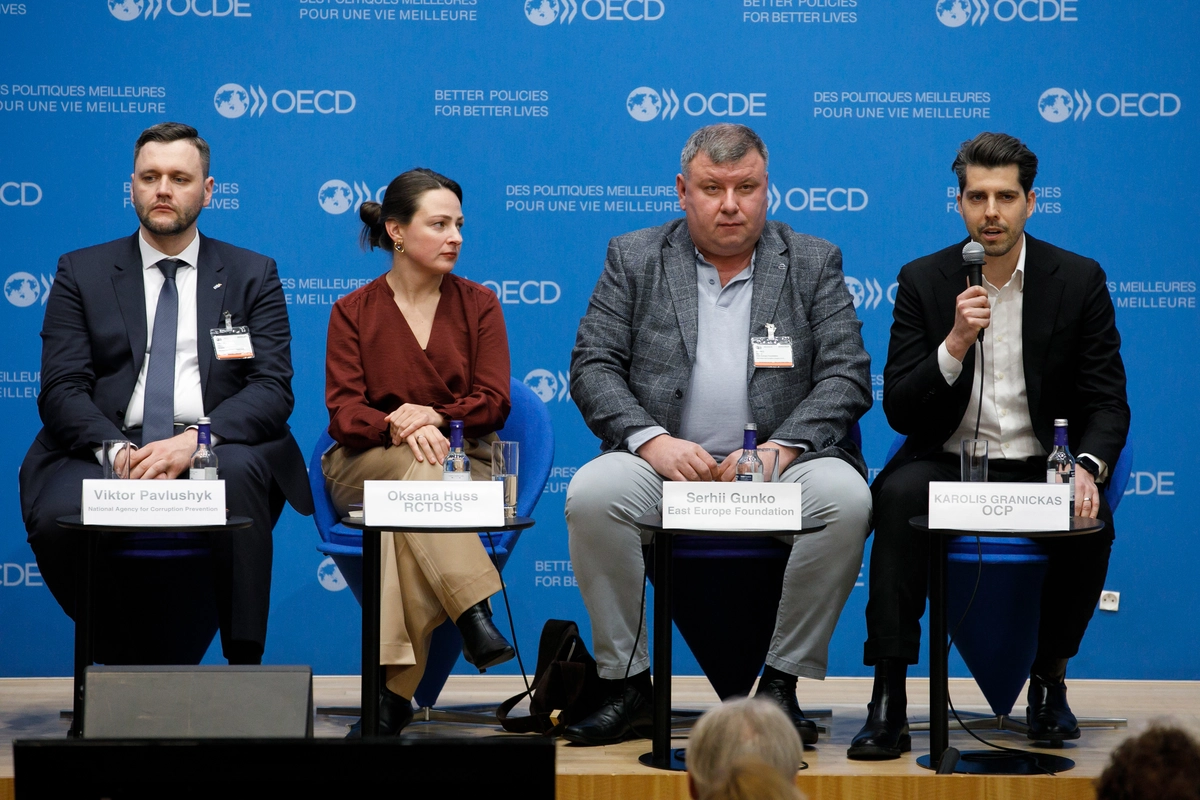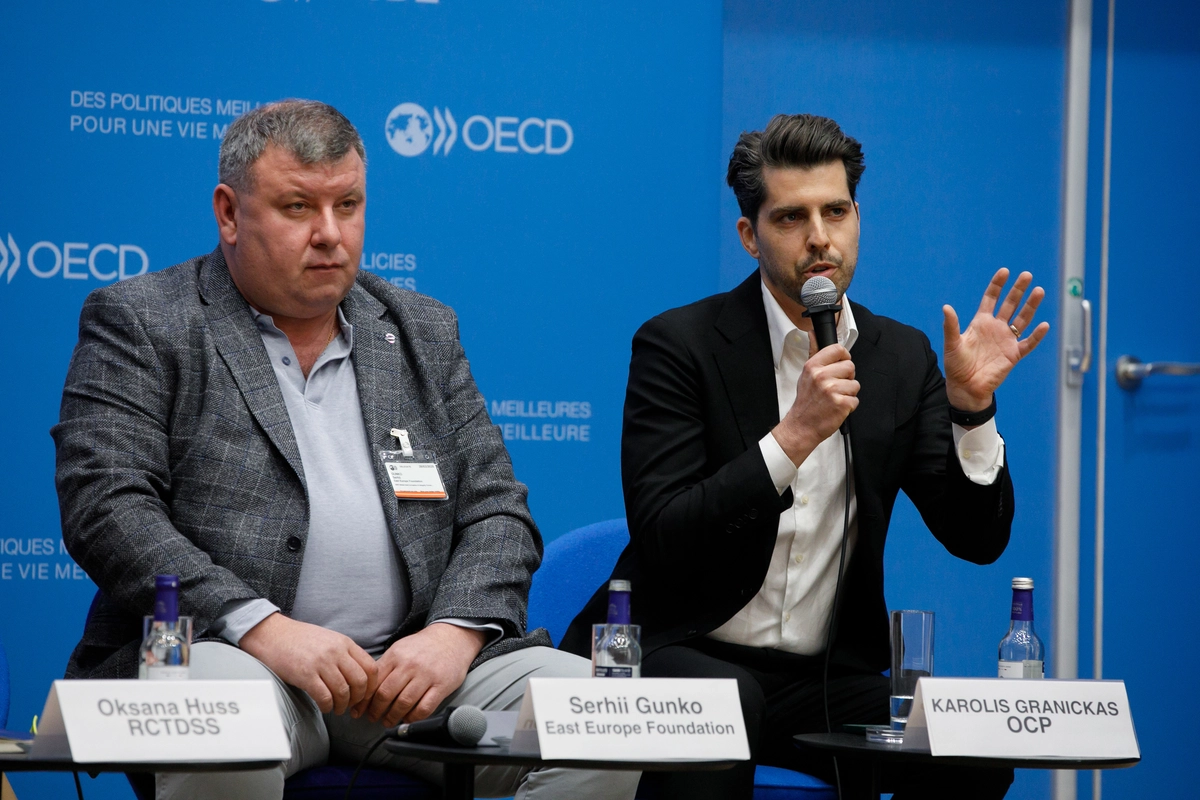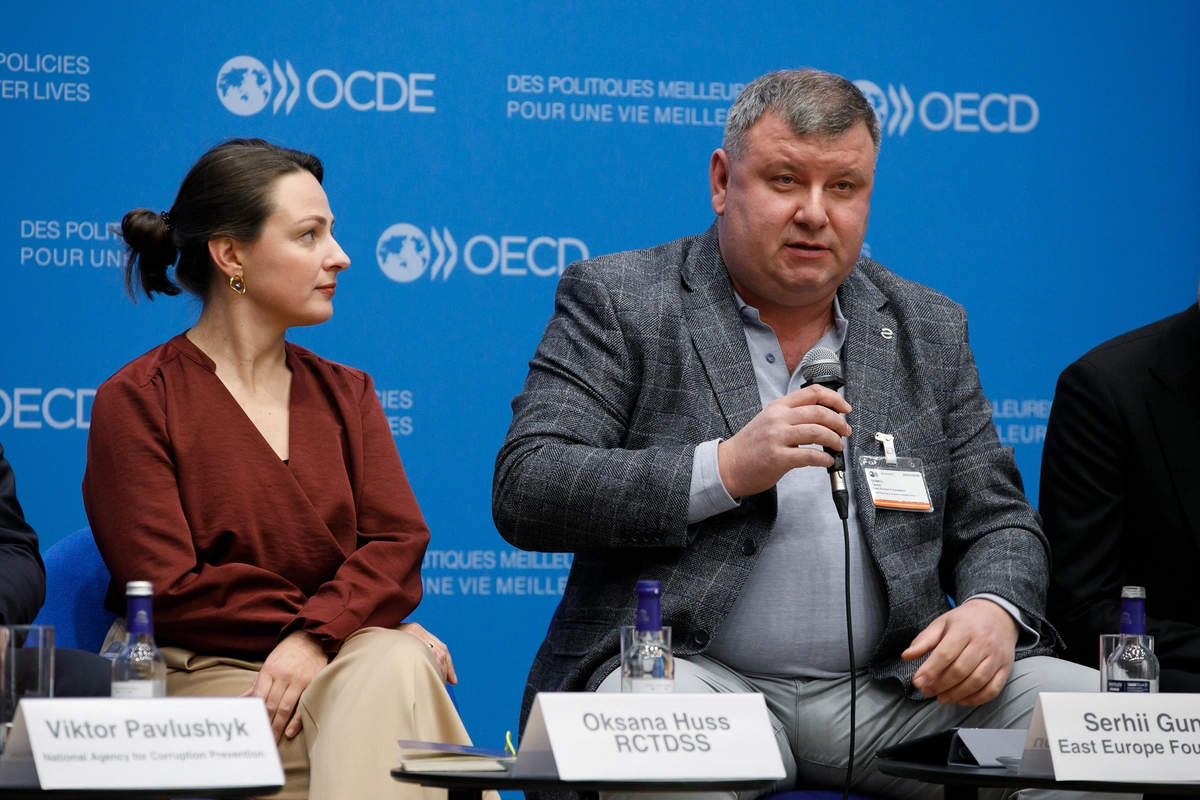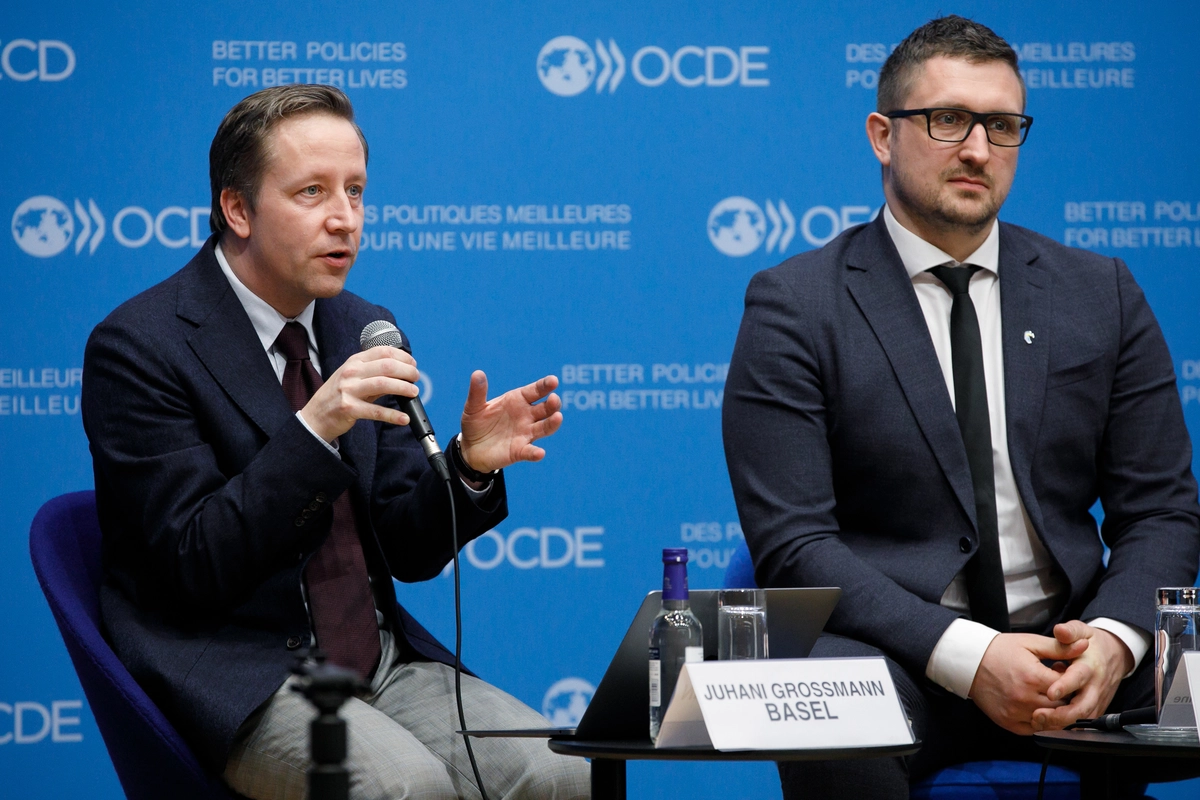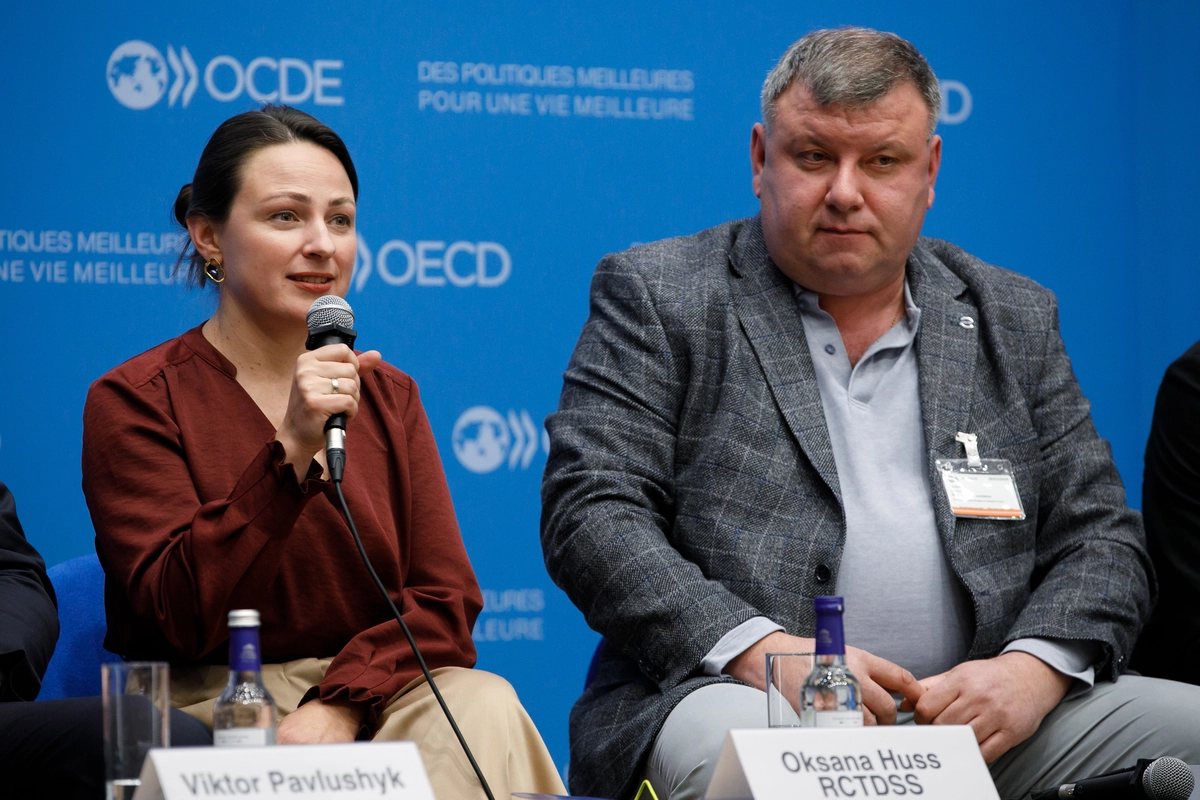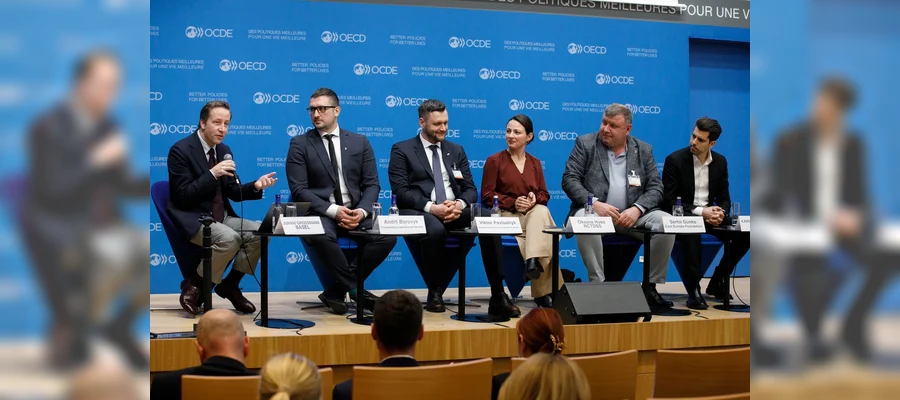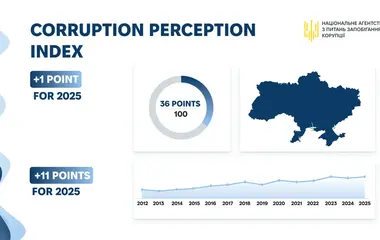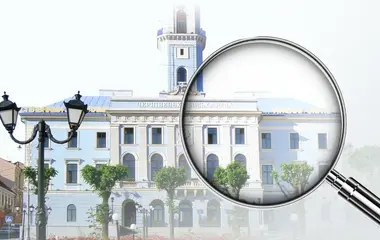In the face of full-scale Russian aggression, Ukraine has strengthened its anti-corruption policy by introducing new and modernising existing integrity building tools. At the same time, the focus of efforts is on those problems and areas where corruption risks have increased due to the war.
This was stated by Viktor Pavlushchyk, Head of the National Agency on Corruption Prevention (NACP), during his speech at the partner session ‘Innovations for Integrity in Time of War’ organised by the Basel Institute on Governance and held as part of the 2025 OECD Global Anti-Corruption & Integrity Forum (GACIF).
After the intrusion, the declaration and public access to officials' declarations were restored, and the functionality of the relevant register was significantly improved, the NACP head said. Currently, almost 700,000 declarants have the opportunity to automatically fill in two-thirds of the sections of the electronic declaration and receive data on the wealth of family members through the Diya app. All declarations are automated, and those that the system identifies as the most risky are sent to specialists for a full review. The introduced innovations have made the display of a fairly large list of declarants' assets quick and easy, while the efficiency of detecting violations last year almost doubled compared to pre-war 2021.
In view of the increased corruption risks, the declaration obligation was also extended to members of the Military Medical Commission, the Medical and Social Expert Commission and heads of the Territorial Recruitment and Social Support Centre.
To ensure the integrity of political finance, the NACP currently operates the Politdata political party reporting register with enhanced functionality, which will soon be upgraded.
The introduction of the Unified Register of Whistleblower Reports in 2023, which has already connected almost 9,000 organisations in Ukraine, was a significant step in building the infrastructure for whistleblowing. So far, thousands of reports from citizens have been submitted to the system.
Viktor Pavlushchyk also spoke about the intensification of work on strategic analysis of corruption risks, which the NACP conducts in the most corruption-affected areas and provides recommendations to authorised institutions to eliminate or minimise the identified risks. During the martial law, attention is focused, in particular, on the areas of recovery and reconstruction, the work of the Military Medical Commission and the Medical and Social Expert Commission, defence procurement, border crossing, etc.
"Ukraine's anti-corruption institutional ecosystem is one of the most comprehensive and developed in the world. Thanks to this, the country achieves gradual but systematic results, which are positively assessed by the European Union and international organisations, including the OECD. It is equally important that our partners from EU member states are eager to learn from our experience in applying anti-corruption instruments, and we have received such requests, including during this forum, and we are certainly ready to communicate and share our expertise with the relevant institutions of foreign countries. At the same time, we continue to develop a network of both traditional and innovative digital technologies to combat corrupt practices. Within its competence alone, the NACP provides a wide range of anti-corruption prevention tools, from open registers to a public monitoring system for the implementation of the State Anti-Corruption Programme. In general, despite the war, Ukraine today ranks third in Europe in terms of open data development, which creates the necessary preconditions for engaging the entire civil society in anti-corruption activities,' said the NACP Head.
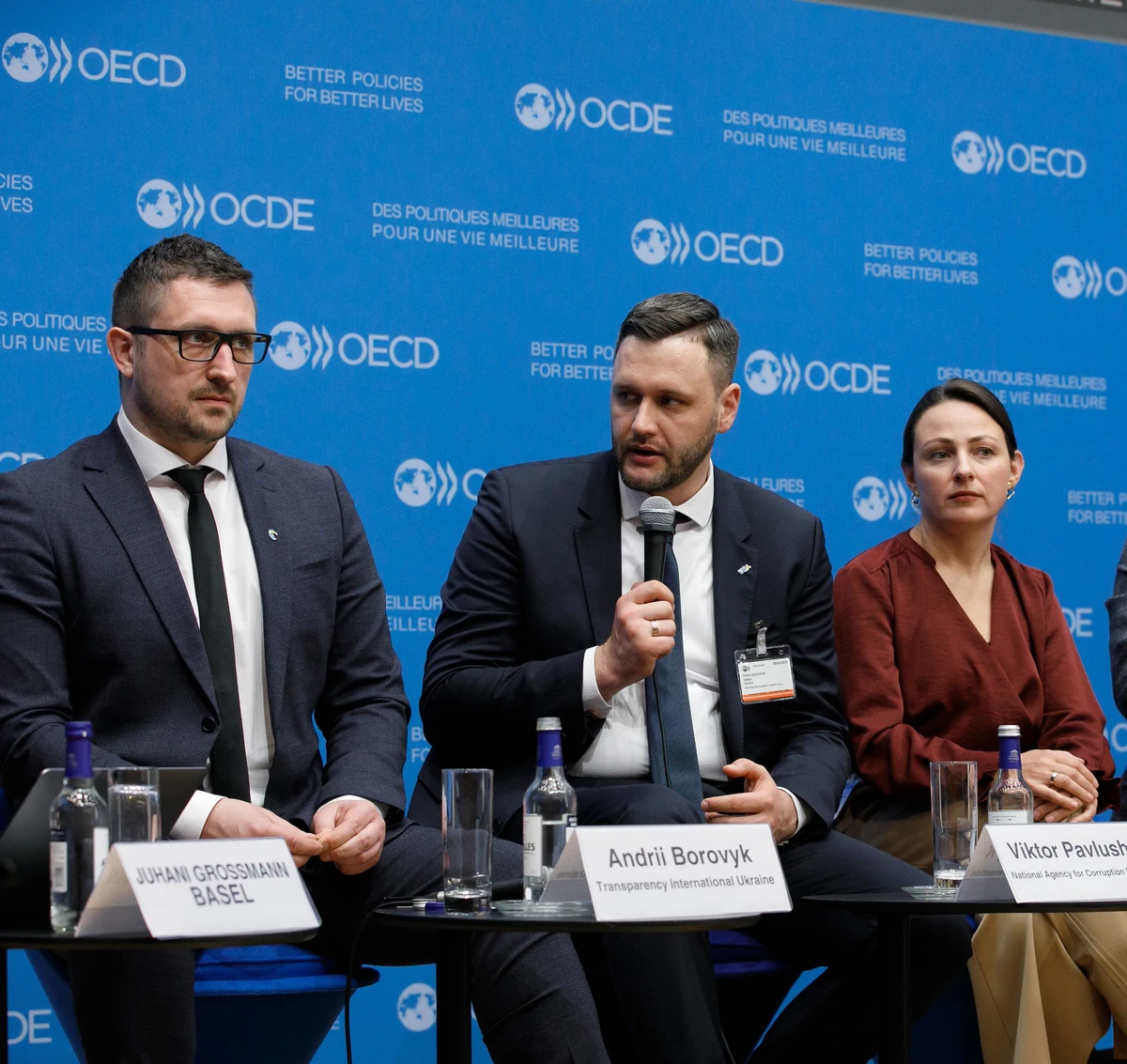
During the partnership session, TI Ukraine's Executive Director Andriy Borovyk also spoke about the role of the Prozorro electronic public procurement system and the Dozorro project of public control over public procurement; Oksana Hus, a researcher of international academic projects on anti-corruption in Ukraine, outlined the role of decentralisation and local party practices in Ukraine in preventing corruption; and Serhiy Gunko, a representative of the East Europe Foundation, presented the Diia digital portal and its importance in improving the interaction of citizens with the state; Karolis Granikas, an expert of the Open Contracting Partnership project, revealed the tasks and capabilities of the electronic system of accountable management of reconstruction (DREAM).
